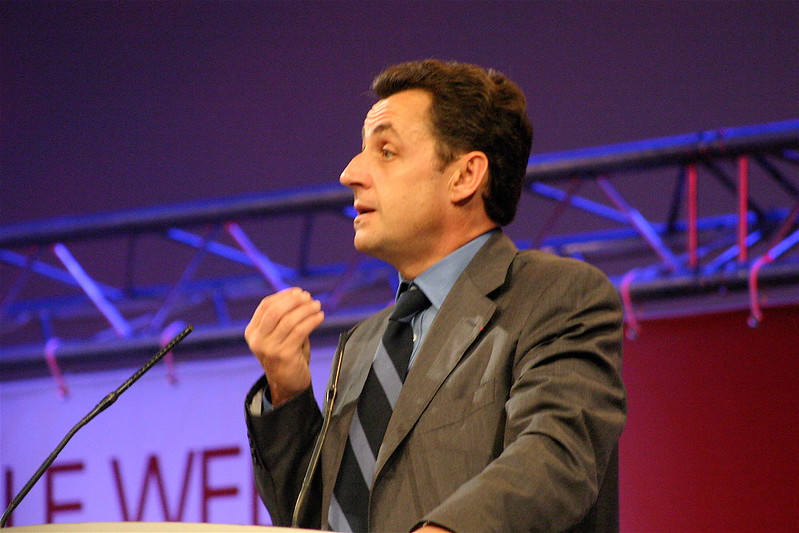Nicolas Sarkozy, who served as president of France from 2007-2012 and attempted an unsuccessful comeback in 2016, has been convicted of corruption and is facing a year in prison. Most likely, he’ll be able to serve that sentence at home in an ankle bracelet, but he has additional legal problems. He stands accused of committing campaign finance violations during his losing 2012 presidential bid and, more seriously, of financing his 2007 campaign with Col. Muammar el-Qaddafi’s money.
Sarkozy, who is 66, isn’t running for president this time around but, as Aurelien Breeden explains in the New York Times, he’s still an important player in French politics:
Mr. Sarkozy is on good terms with President Emmanuel Macron, who has recently steered France to the right, and he still wields considerable influence on the main conservative political party in France, Les Républicains.
With the presidential election fast approaching and no clear front-runners in sight, Mr. Sarkozy’s blessing is widely sought by party officials, many of whom have disparaged the French justice system in recent years, accusing prosecutors and judges of unfairly targeting Mr. Sarkozy.
This could quite easily be what the future holds for American politics. To begin with, Donald Trump may run for president again in 2024 despite being defeated in 2020 after serving one term and despite being embroiled in all manner of legal controversies and liabilities, including ongoing investigations about foreign influence in his successful 2016 election.
For another, even if he is not a candidate in 2024, it is quite likely that his blessing will be sought by the Republicans who are seeking the presidency. The same can be said about 2028 if Trump follows Sarkozy’s exact pattern and runs and loses in 2024.
On the legal front, Trump’s legal problems might be more immediately debilitating than anything Sarkozy faces, mainly because in addition to corruption, foreign influence and campaign finance issues, Trump also faces rape and sexual harassment-related defamation cases and very serious-looking civil and criminal probes into his business practices. There are also liabilities related to the aftermath of the 2020 campaign, including election tampering in Georgia and the January 6 insurrection. And it has barely made a blip on the national radar that Washington, D.C., Attorney General Karl Racine deposed Ivanka Trump in December and Donald Trump Jr. on February 11 in a case related to potential 2017 misuse of inaugural funds.
As with Sarkozy’s example, where some credible investigations have been discontinued, it’s likely that Trump will get a pass on some things simply because there only are so many times you can indict a man. For example, the U.S. attorney’s office in Manhattan is reportedly disinterested in prosecuting Trump (a.k.a., Individual-1) for Stormy Daniels-related crimes despite the fact that his lawyer Michael Cohen did prison time for carrying out Trump’s instructions.
But any leniency Trump receives will not prevent his supporters from disparaging the American justice system and accusing prosecutors and judges of unfairly targeting him.
Sarkozy has been out of power for nine years and yet he has only now been convicted of a crime. Nine years from now, Trump will be nearly 85 years old, and his age could give him an advantage over the former French president who was only 57 when he left office.
Either way, the news out of France demonstrates that it’s possible to hold a corrupt president to account, but also that it’s hard to curb the corroding influence of a corrupt president. Optimists will focus on the former example, while pessimists will lament the latter, but both should agree that Trump should not escape justice.



